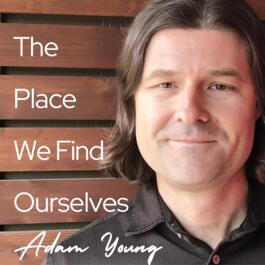
The Place We Find Ourselves
The Place We Find Ourselves podcast features private practice therapist Adam Young (LCSW, MDiv) and interview guests as they discuss all things related to story, trauma, attachment, and interpersonal neurobiology. Listen in as Adam unpacks how trauma and abuse impact the heart and mind, as well as how to navigate the path toward healing, wholeness, and restoration. Interview episodes give you a sacred glimpse into the real-life stories of guests who have engaged their own experiences of trauma and abuse. Drawing from the work of neuroscientists such as Allan Schore, Dan Siegel, and Bessel van der Kolk, as well as psychologist Dan Allender, this podcast will equip and inspire you to engage your own stories of harm in deep, transformative ways.
Show episodes
Stephanie Duncan Smith joins me today to talk about her book, "Even After Everything: The Spiritual Practice of Knowing the Risks and Loving Anyway." Topics covered include: Stephanie's pregnancy losses, how she learned to think differently about her period (and her entire cycle), the importance of listening to our bod
Dr. Hillary McBride talks about her new book titled, Holy Hurt: Understanding Spiritual Trauma and the Process of Healing. Topics covered include: our deep human need to belong, the inherent goodness of your heart (despite what you may have been told), how healing should not be defined as "something going away," and th
I am joined today by author Jay Stringer to talk about sexual stuckness/difficulties/struggles. Healthy sexuality is deeply tied to the degree to which we have made sense of our story in our family of origin. Sadly, so few of us have ever been asked to connect the dots between our past life story and the sexual difficu
Today's episode is different. Dan Allender takes over the podcast to interview me about my new book titled, Make Sense of Your Story: Why Engaging Your Past with Kindness Changes Everything. Topics covered include: how to respond when we fail those we love, how the book launch re-enacts core dynamics in my life, how to
John Eldredge returns to the podcast to talk about his newest book titled, "Experience Jesus. Really." Topics covered include: how to live as an ordinary mystic (someone who experiences the sweet presence of God on a regular basis), why you don't need to understand something to experience it and benefit from it, the im
I am joined today by my friend Gail Stucker who is a trauma-informed story coach. Gail generously shares a story about herself as an 8th grader. Topics we cover: taking your story seriously when you don't believe you have any "capital T" trauma, longing for the delight of your parents, blessing your desire for delight